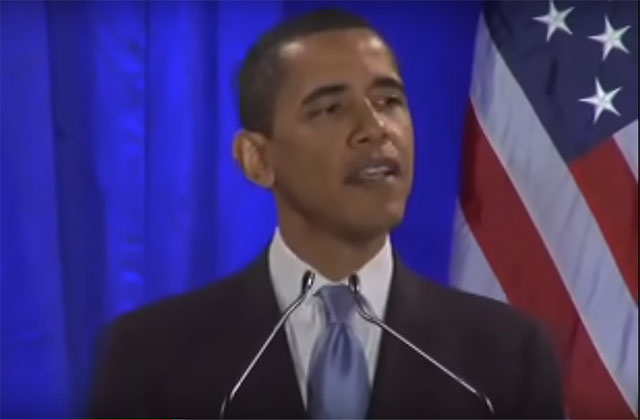Twelve years ago today, on March 18, 2008, presidential candidate Barack Obama delivered his historic speech on race, “A More Perfect Union,” delivered on the heels of the Reverend Jeremiah Wright controversy which threatened to stoke racial division in a campaign which touted hope and unity. In the latest episode of NPR’s “It’s Been a Minute with Sam Sanders,” Jon Favreau, Obama’s former speechwriter and host of Crooked Media’s “Pod Save America"; historian Tracey Sharpley Whiting; and Black Lives Matter co-founder Alicia Garza discuss whether the speech would still stand today, more than a decade later.
A focal point of Obama’s speech was the line where he compared Wright to his grandmother who raised him, saying, “I can no more disown him than I can disown the Black community. I can no more disown him than I can disown my White grandmother.”
Below are snapshots from the podcast, as the guests unpacked the speech:
Favreau: "He gives a round of cable interviews. And, of course, it doesn’t go away. And we had a senior staff call every Saturday morning. So I get on the call. And David Axelrod says, all right. I talked to Barack. And he’s very insistent that he wants to give a speech about this. And it’s not just going to be a speech about Reverend Wright. It’s going to be a speech about race in America…He talks about how for many White people who aren’t very economically advantaged themselves, they don’t see themselves as people who are cutting the line or have a bunch of advantages economically. A couple of my producers said, I don’t know if that’s wise to say."
If Obama gave the speech today: "I think a lot of people would have some questions for him. And I would love to hear what the conversation is maybe if he did a Q&A after the speech," says Favreau.
Sharpley-Whiting: "He was symbolic of something that was necessary and needed. And for Black folks, oftentimes, the symbol is more important than what cashing the check might also deliver. And so Obama was never forced to cash a certain check in certain ways by Black people…I think what might have held whatever 10 years ago, 12 years ago would seem to be a little bit dated in terms of solutions, right? So I can see that. But then there are other texts that I do think hold up interestingly well, and they might be, you know, over 100 years old, you know? James Baldwin’s "The Fire Next Time"—Obama could not be as candid as Baldwin."
Garza: "I think a lot of that both-sides-ism really reflected a lack of depth in understanding the difference between prejudice or discrimination and racism. I actually think that his viewpoint on race is shared by lots of people in this country, predominantly White folks, who, I think, have a hard time, sometimes, grappling with the notion that this whole country was built off of the backs of Indigenous people whose lands were stolen to provide, right? Resources for a new economy that colonialists kind of were developing, that Black labor and Black bodies built this country, that, you know, Chinese bodies—right?—built this country and that America has never atoned for that. It’s almost as if folks see history because this is the way we’re taught, right? Folks see history in a very two-dimensional way. And Barack Obama actually makes this comment. He says, you know, there wasn’t, the problem wasn’t that Reverend Wright made these comments. The problem is that it views America as static."
Listen to the full episode below, courtesy of NPR:
